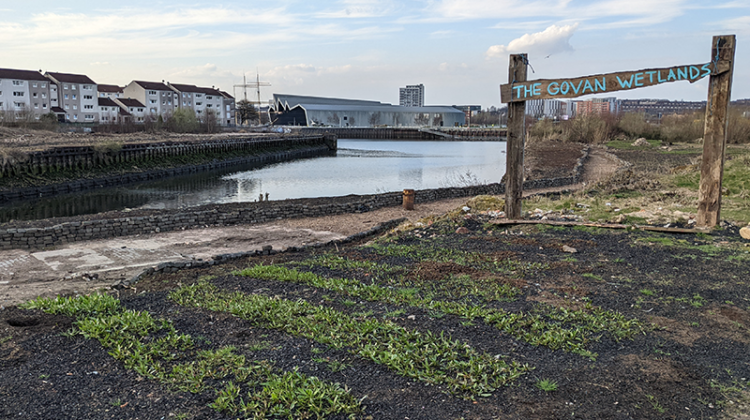
Engineers Without Borders UK has launched the latest iteration of its award-winning Engineering for People Design Challenge.
This year’s challenge is being run in partnership with Engineers Without Borders South Africa and the Govan Community Project, a community-based organisation that works to achieve social justice in the Greater Govan area, which is situated on the waterfront of the River Clyde in the southwest of Glasgow, by building a strong community based on equality, mutual respect, support and integration. The project was founded as a community response to the needs of people seeking asylum in Glasgow. Today, it supports communities across the Greater Govan area, as well as refugees and people seeking asylum all over Glasgow.
The competition brief considers the engineering challenges and opportunities that are found in Govan, an area with a rich history, heritage and physical landscape.
Now in its 12th year, the Engineering for People Design Challenge has reached more than 60,000 undergraduate students across Cameroon, South Africa, the UK, Ireland and the USA, and the 2022–23 challenge will be delivered to more than 40 universities in those countries.
Educators from each of these institutions will review their students’ submissions and put forward the top five for judging by industry volunteers. The top teams will then be invited to present their solutions at the grand finals, with the Grand Prize winners being awarded an educational bursary. The runner-up and the winner of the People’s Prize will also share an educational bursary.
‘Students will have the opportunity to learn about how the historical significance of shipbuilding has shaped Govan today, the experiences of refugees and people seeking asylum within the Govan community, and the importance and strength of community to people living in the Govan area,’ said Traci Kirkland, head of charity at the Govan Community Project. ‘Opportunities for developments in and around Govan open up aspirations for environmental resilience and economical and societal regeneration.’
There are eight challenge areas:
• Built environment: This includes all human-made physical spaces where we live, work and enjoy leisure activities;
• Food security: This occurs when all people have access to sufficient, safe, culturally appropriate and nutritious food that meets their requirements for an active and healthy life, and in a way that the planet can sustain into the future;
• Energy: Reliable access to energy, in particular electricity, often reduces the time people spend on everyday tasks;
• Waste: It’s vital to address and responsibly manage our shared resources through reducing, recycling and reusing waste in order to prevent environmental damage, health risks and the development of unsightly and undesirable areas;
• Water supply: A reliable supply of clean, safe drinking water is essential for people to lead healthy lives;
• Sanitation: This involves the safe management, treatment and eventual safe end use or disposal of water that’s contaminated in order to prevent potential health problems;
• Transport: Mobility and access to transport infrastructure allow people and goods to move around freely;
• Digitalisation: While many people benefit hugely from modern digital advances in information communications, some of us haven’t had the same opportunities.
‘By investigating the different challenge areas, students will be encouraged to consider the impacts of de-industrialisation, physical and economic decline, ongoing social issues and the challenges of integration for those arriving in Govan from around the world; all while noting the link between engineering design and supporting people’s ability to thrive, celebrate diversity and be an active part of their community,” said Emma Crichton, head of engineering at Engineers Without Borders UK.
You can find out how to get involved with the Engineering for People Design Challenge 2022/3 by visiting here.


